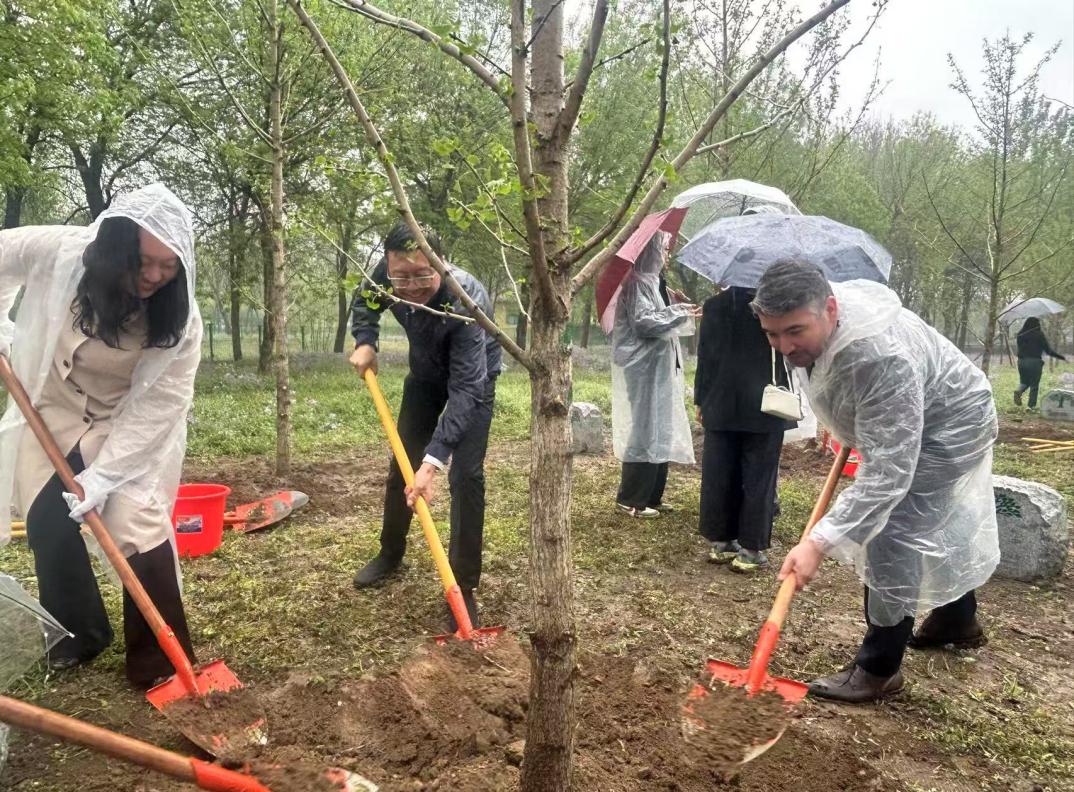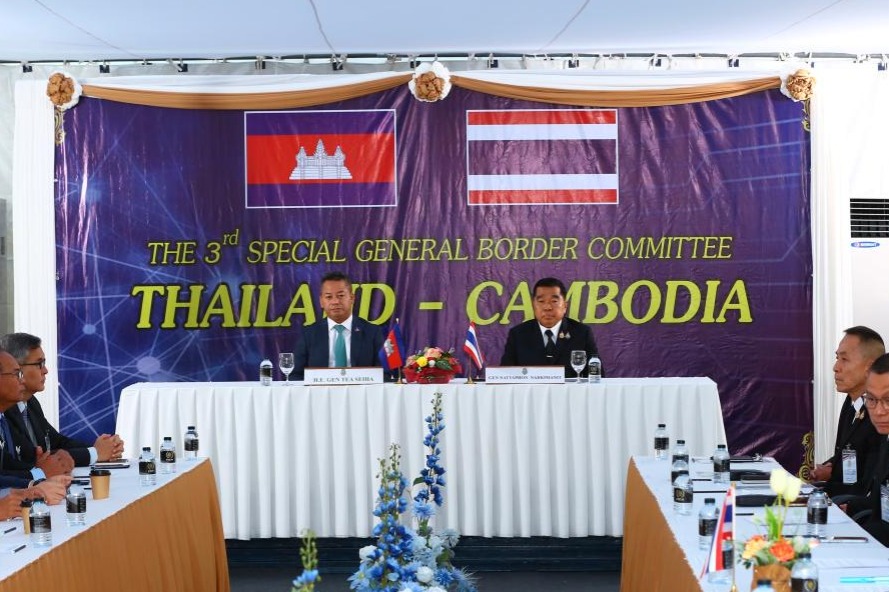Chinese, Latin American and Caribbean diplomats plant friendship woods


Diplomats from China and Latin American and Caribbean countries on Friday jointly planted friendship woods in Beijing, symbolizing their shared commitment to fostering solidarity and delivering greater benefits to their peoples through enhanced cooperation.
This year marks the 10th anniversary of the formal launch of the Forum of China and the Community of Latin American and Caribbean States, with the fourth ministerial meeting scheduled to be held in Beijing in the coming months.
Qiu Xiaoqi, special representative of the Chinese government on Latin American affairs, expressed confidence that the upcoming meeting would demonstrate the unity and cooperation between China and LAC nations, setting a new milestone for their relations.
Since its inception in 2015, the China-CELAC Forum has become a central platform for overall cooperation, with three ministerial meetings and over 100 activities across 31 sectors having been held, according to Qiu.
Uruguayan Ambassador to China Fernando Lugris highlighted that the planting of friendship woods symbolizes the shared goals of the LAC nations, hoping that China-Latin America relations continue to grow healthily in the coming decade.
Noting the region is crucial for the future of global climate and the planet, Lugris, also dean of the Diplomatic Corps of Latin American and Caribbean Countries in China, emphasized the need to "work actively with China in order to preserve the multilateral system and to push the international community to continue to work actively together in the right direction."
Li Xikui, chairman of the China Friendship and Peace Development Foundation and former vice-president of the Chinese People's Association for Friendship with Foreign Countries, noted that both China and LAC countries are natural partners in pursuing peace and collective development.
He stressed that the friendship woods not only represent the robust bonds between China and LAC partners but also reflect their shared commitment to tackling climate change and advancing green development.
Looking ahead, Li pointed out that Brazil will host the 2025 United Nations Climate Change Conference in November, marking a "Latin American moment" in global governance, which could offer new opportunities for deeper China-Latin America collaboration.
Bolivian Ambassador to China Hugo Slies said China and LAC nations over the past decade have leveraged high level exchanges to strengthen political trust, share governance experiences and development practices, and promote dialogue and mutual learning, steadily advancing their relationship which he said features equality, respect for sovereignty, mutual benefit, innovation and openness.
Slies also highlighted that Bolivia and China have cultivated mutual trust and supported each other concerning fundamental issues and shared interests, solidifying the foundation of bilateral cooperation.
The ambassador hailed the leapfrog development of bilateral ties over the past decade, such as the launch of Bolivia's first communication satellite developed by China, technology transfers across various fields, and infrastructure and industrial loans.
He noted that the act of planting trees signifies the nurturing of the Bolivia-China friendship. With the two countries soon celebrating 40th anniversary of diplomatic links, the top envoy said he was convinced that Bolivia and China have immense opportunities to shape a shared present and future together.

































